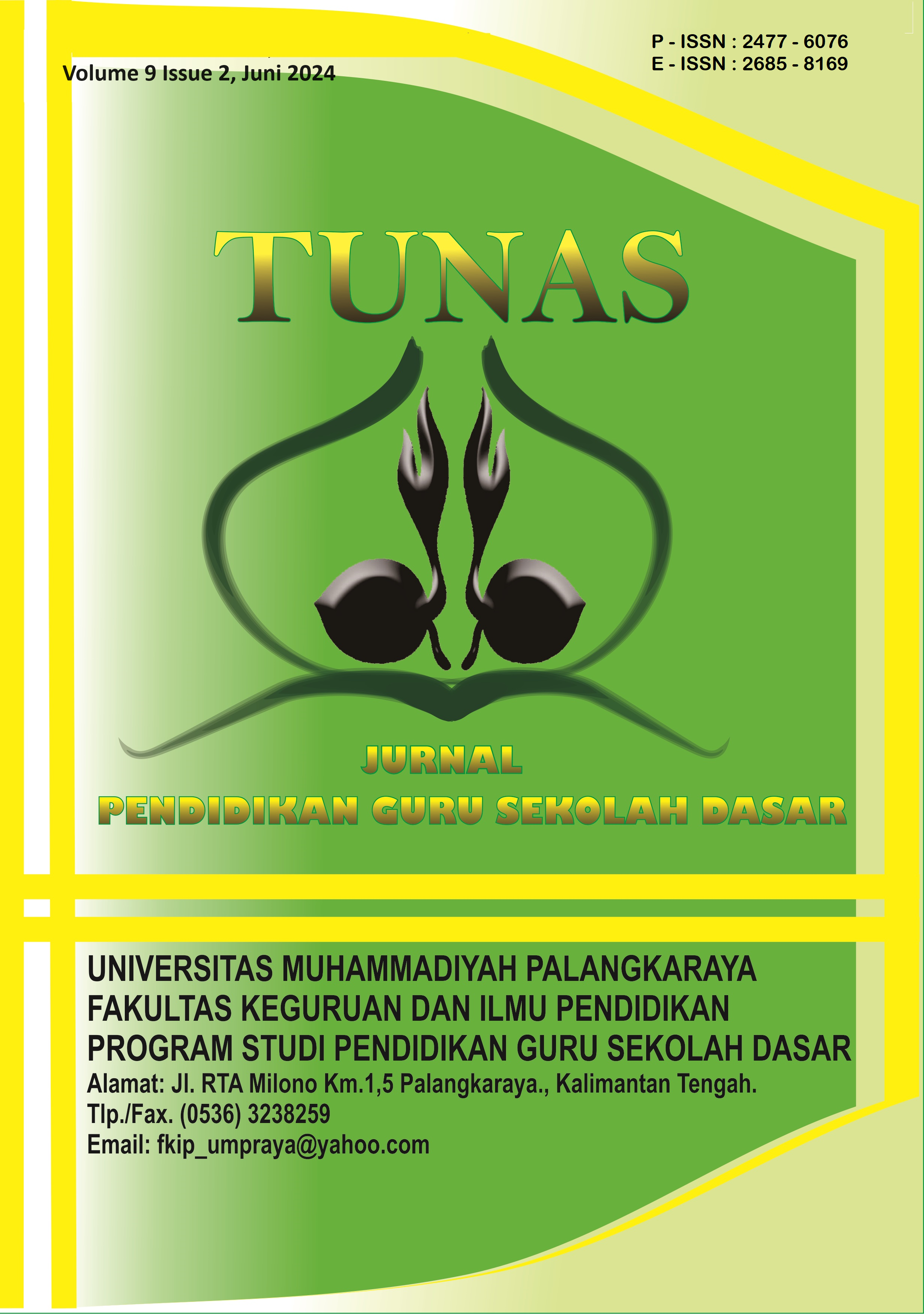The Importance of Islamic Values in the Views of Lecturers: A Survey Analysis
Main Article Content
Abstract
Background: religious values play an important role in shaping students' character and morals, and understanding lecturers' views regarding this can provide in-depth insights for improving higher education. Aim: analyze lecturers' perceptions of Islamic values, focus on understanding their level of awareness, integration of religious values in the curriculum, the role of lecturers in forming character, institutional support, and the influence of understanding Islamic values on student morale. Method: This research uses a survey method involving 60 lecturers as respondents. The survey involved structured questions covering the level of importance of Islamic values, integration in the curriculum, the role of lecturers, institutional support, and views on the influence of understanding Islamic values on student morale. Results and Discussion: Survey results show that the majority of lecturers are aware of the importance of Islamic values (91.6%) and the majority (80%) feel that these values are sufficiently integrated in the curriculum. Support for the role of lecturers in forming Islamic character is high (88.4%), and most lecturers (78.3%) feel they receive adequate institutional support. Overall, the results show a positive view of lecturers towards Islamic values. The conclusion of this research highlights the importance of supporting lecturers in strengthening their role as character-forming agents and emphasizes the need for the integration of religious values in the higher education curriculum. The implications of these findings can help design more holistic educational policies and strategies, creating an educational environment that focuses on developing student character and morality.
Downloads
Article Details

This work is licensed under a Creative Commons Attribution-ShareAlike 4.0 International License.
Authors who publish with this journal agree to the following terms:
- Any article on the copyright is retained by the author(s).
- The author grants the journal, right of first publication with the work simultaneously licensed under a Creative Commons Attribution License that allows others to share work with an acknowledgment of the work authors and initial publications in this journal.
- Authors are able to enter into separate, additional contractual arrangements for the non-exclusive distribution of published articles of work (eg, post-institutional repository) or publish it in a book, with acknowledgment of its initial publication in this journal.
- Authors are permitted and encouraged to post their work online (e.g., in institutional repositories or on their websites) prior to and during the submission process, as can lead to productive exchanges, as well as earlier and greater citation of published work.
- The article and any associated published material is distributed under the Creative Commons Attribution-ShareAlike 4.0 International License
References
Anam, K., & Setyawan, B. (2019, September 23). Integrating Islamic Education Values to Build Religious Character of Student in Higher Education. Proceedings of the 1st Seminar and Workshop on Research Design, for Education, Social Science, Arts, and Humanities, SEWORD FRESSH 2019, April 27 2019, Surakarta, Central Java, Indonesia. https://eudl.eu/doi/10.4108/eai.27-4-2019.2286860
Elmas, G., Aris, T. M., & Hidayati, N. (2022). Survey of Ideal Lecturer Interested by Students IKIP Budi Utomo Malang. PROSIDING SEMINAR NASIONAL PENDIDIKAN JASMANI DAN KEOLAHRAGAAN, 1(1), Article 1. https://doi.org/10.33503/prosiding_penjas_pjkribu.v1i1.2339
Fatimah, A. C. (2022). HUBUNGAN PENDIDIKAN AGAMA ISLAM DAN POLITIK KEKUASAAN DI INDONESIA. Fitrah: Jurnal Studi Pendidikan, 13(1), Article 1. https://doi.org/10.47625/fitrah.v13i1.373
Hayat, N., & Arif, S. (2022). اعلی تعلیمی اداروں میں اسلامی اخلاق و اقدار کی اہمیت: مستقبل کے معمارانِ قوم کی تربیت اور عصری چیلنجز کے تناظر میں تجزیاتی مطالعہThe Significance of Islamic Ethics in Higher Educational Institutions: An Analytical Study in backdrop of the Training of Future Architects of the Nation and Contemporary Challenges. Al-Wifaq, 5(1), 259–277. https://doi.org/10.55603/alwifaq.v5i1.u16
Kadi, T. (2022). Mainstreaming Islamic Moderations Values in Higher Education: Policy, Implementation, and Challenges. Dinamika Ilmu, 22(1), Article 1. https://doi.org/10.21093/di.v22i1.3679
Kurt, T., & Koyuncu, M. (2023). Yükseköğretimde Akademisyenlerin Değer Eğitimi Algıları: Din Eğitimi Anabilim Dalı Özelinde Fenomenolojik Bir Araştırma. Değerler Eğitimi Dergisi, 21(45), Article 45. https://doi.org/10.34234/ded.1232671
Mawardi, M., Mighfar, S., & Rahwan, R. (2022). LAMARAN (KHITHBAH) DALAM PERNIKAHAN PERSPEKTIF PENDIDIKAN ISLAM. Al-Hukmi : Jurnal Hukum Ekonomi Syariah Dan Keluarga Islam, 3(1), Article 1. https://doi.org/10.35316/alhukmi.v3i1.2197
Mushaathoni, M., & Cekiso, M. (2022). Students’ perceptions of lecturers’ motivational strategies and their attitudes towards the English language and an academic English module. Literator, 43(1), Article 1. https://doi.org/10.4102/lit.v43i1.1904
Rizqiani, I. S., & Sukmawaty, F. (2023). PENGARUH MATA KULIAH AQIDAH AKHLAK TERHADAP NILAI BUDAYA ISLAMI MAHASISWA DI UNIVERSITAS MUHAMMADIYAH SUKABUMI. AL-ULUM : Jurnal Ilmu Sosial dan Humaniora, 9(1), Article 1. https://doi.org/10.31602/alsh.v9i1.10139
Sakrani, A. (2023). INTEGRASI NILAI-NILAI ISLAM DALAM PEMBELAJARAN BAHASA INGGRIS DI MI AL-ISLAMIYAH BEBIDAS. Al-Mujahidah, 4(1), Article 1. https://doi.org/10.51806/al-mujahidah.v4i1.72
Solehuddin, M., Tarihoran, D., Nurteti, L., Philipp, C., & Henkin, C. (2023). Islamic Religious Education Learning Model Based on Living Values Educations in Higher Education. Al-Fikrah: Jurnal Manajemen Pendidikan, 11(1), Article 1. https://doi.org/10.31958/jaf.v11i1.8612
Suhendri, S. (2022). Islamic Education Institution Programs That Address the Psychosocial Crises of Stude. KnE Social Sciences, 560–569. https://doi.org/10.18502/kss.v7i8.10774
Susanto, R. (2019). Lecturers’ Professionalism in Shaping Students’ Perceptions and
Commitments. Journal of Education Research and Evaluation, 3(1), Article 1. https://doi.org/10.23887/jere.v3i1.17768
Sutarto, S., & Sari, D. P. (2022). Islamic Religious Education Learning Strategies to Build Inclusive Religious Character for University Students. AL-ISHLAH: Jurnal Pendidikan, 14(4), Article 4. https://doi.org/10.35445/alishlah.v14i4.2332
